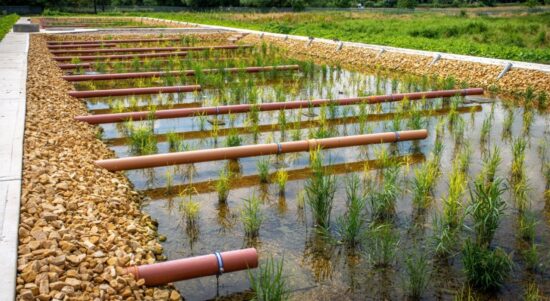
By Professor Ian Barker CEnv HonFSE FIWater
The work of a Parliamentary Committee can seem remote and, well, rather detached from the day-to-day work of environmental practitioners. But occasionally a Committee will lob a stone into murky waters and cause ripples that spread a long way.
And that’s exactly what happened on 13 January 2022 when the Environmental Audit Committee (EAC) released its report ‘Water Quality in Rivers’. The title looks innocuous but the content is anything but; it tells a story of a chemical cocktail poisoning our rivers and has made headlines in the days after the report’s publication.
The Water Quality in Rivers report’s most damning headline is that “it is clear that rivers in England are in a mess”. And given that not a single river in England meets the standards for water quality the EAC has said that chronic underinvestment and multiple failures in monitoring, governance and enforcement are to blame. And that getting a complete overview is hampered by outdated, underfunded and inadequate monitoring regimes. The EAC concluded that this is a consequence of Environment Agency budget cuts hampering its ability to monitor water quality and ecosystem health, and to detect or respond to permit breaches and pollution incidents.
The report was complimentary about the value of citizen science in contributing to the understanding of the state of our rivers and the extent and frequency of pollution events, whether from agriculture or sewage discharges. It documented data which suggested that the number of discharges of sewage may be significantly higher than those reported by the water companies to the Environment Agency, and both the EA and Ofwat have announced that they are conducting urgent investigations to better understand how companies have been performing. Pressure groups and NGOs have also been highlighting the frequency of sewage spills into rivers and the marine environment, and anglers, wild swimmers and paddle boarders have provided further evidence of what is happening.
The Committee also looked at the consequences of sewer blockages caused by water company customers flushing wet wipes and sanitary products – rather than just the “3Ps” (“pee, poo and paper”) – together with cooking fats, oils and greases which can all coalesce into fatbergs the size of a blue whale, blocking sewers and causing them to spill untreated sewage.
The EAC also heard evidence about the pollution from road runoff. As tyres and brakes wear out all that material has to go somewhere, and rainfall flushes it into drains and soakaways which ultimately connect with the natural water environment.
As well as documenting the human impact the EAC also examined the effects of poor water quality on ecosystems, including the increasing prevalence of algal blooms caused by excess nutrients such as phosphates from agriculture and sewage, which are poisoning rivers. They were also concerned by the lack of monitoring to understand the prevalence of microplastics; what little evidence there is suggests that they are ubiquitous in the freshwater environment, but their impact is uncertain.
I’ve been at the sharp end of a Parliamentary Committee inquiry on many occasions, and so I can imagine how the various organisations who are named in the hard-hitting recommendations might have felt when they read the report. But on this occasion I had the honour to be appointed as the Expert Adviser to the Committee, and so was given a privileged insight to its workings. There was much that impressed me, but two things in particular stood out. The first was the focus on gathering and interpreting the evidence from the wide range of written submissions and also the six oral hearings, and then drawing conclusions from that evidence to develop the recommendations. The second was the determination that the report should be impartial and that it should seek to deliver environmental improvements. I hope that when you read it you’ll agree, and that you’ll also think about what you can do to deliver change.
– Professor Ian Barker CEnv HonFSE FIWater
Ian is registered as a Chartered Environmentalist (CEnv) via his membership of the Institute of Water.
